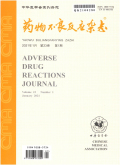摘要普纳替尼(ponatinib)是一种多靶点酪氨酸激酶抑制剂(TKI),用于慢性髓性白血病和费城染色体阳性急性淋巴细胞白血病的二线治疗。该药是针对ABL-T315I突变的BCR-ABL蛋白激酶抑制剂,对于接受多次治疗或对第一和第二代TKI耐药的患者,通常有效。然而普纳替尼心血管毒性常见且严重,可导致动脉闭塞事件、高血压、心肌梗死等心血管不良事件,发生机制可能与诱导血小板功能障碍、血管内皮功能障碍和心肌细胞损伤等有关。普纳替尼治疗中一旦发生心血管不良事件,临床通常采取减量或停药措施,但可能影响患者肿瘤治疗的效果。可考虑依据"ABCDE"法制定干预措施以降低普纳替尼心血管毒性的风险。
更多相关知识
abstractsPonatinib is a multi-target tyrosine kinase inhibitor (TKI) indicated as second-line therapy for chronic myeloid leukemia and Philadelphia chromosome-positive acute lymphoblastic leukemia. It is the first BCR-ABL kinase inhibitor that targets ABL-T315I, and is effective for patients who have received multiple treatments or lack sensitivity to first or second-generation TKIs. However, the cardiovascular toxicities of ponatinib are frequent and serious. The common cardiovascular adverse events of ponatinib are arterial occlusive events, hypertension, myocardial infarction, etc. The mechanisms of these events might be related to platelet dysfunction, vascular endothelial dysfunction, and myocardial injury. Once adverse cardiovascular events occur in the treatment of ponatinib, dose reduction and even therapy discontinuation are common measures, which might hinder the tumor therapeutic effect in patients. Intervention measures can be formulated according to the "ABCDE" method to reduce the risk of cardiovascular toxicity of ponatinib.
More相关知识
- 浏览0
- 被引0
- 下载0


相似文献
- 中文期刊
- 外文期刊
- 学位论文
- 会议论文



 换一批
换一批 换一批
换一批



